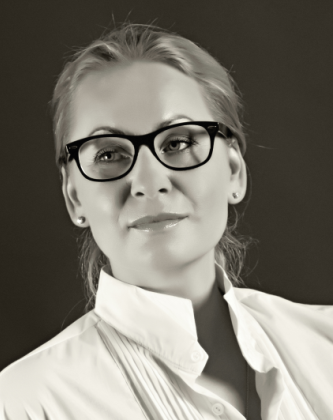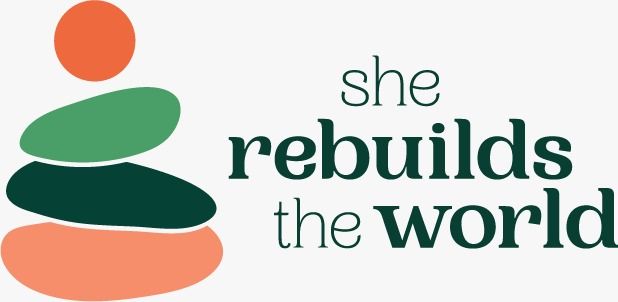
Ieva Jākobsone is a Latvian-born businesswoman, entrepreneur, professor, and EU lawyer. Across the many impressive titles Ieva has earned, she is the co-founder of the Latvian-African NGO, “She Rebuilds the World” (SRW). This project aims to inspire, empower, and educate female entrepreneurs in Africa in conjunction with Latvian leadership. In this raw interview, Ieva recounts her Soviet childhood in Latvia and how this experience has shaped her current mission with SRW and the incredible woman she is today.
I was born in Latvia in a city with 60,000 people which was very industrial during Soviet time. There was not much culture, or history because the city was bombed in World War II. I think I saw this plainness in my childhood as part of me.
I think no, because the problem is that I was born into the Soviet Union right before 1991 when we gained independence. Imagine a culture where everyone is equal, everybody was gray. Think about what you could go and find and buy at the shop, there was just one type of clothing, one type of shoe, and one type of food. Everyone was so equal that there was no culture, especially in my town, because it was an industrial town with a lot of engineers and Soviets. That was the reason why there was no spark of culture and as I said, the city was bombed. Even if you think about architecture like the churches, they are restored now but at that time it was very, very gray.
My dad was born in independent Latvia in 1937 and that was a completely different time. I think his mom, my grandma, brought him up as very independent, very strong-minded, and also very Latvian. Interestingly enough, my dad was working in an energy company, one of the biggest ones in Latvia. He was ready to be promoted to the director of the organization, but he would have had to join the communist party. He said, “No, that’s not something I believe in and I’m not going to be part of this.” Basically, he left unpromoted because he didn’t join the communist party.
My mom was brought up in the time of the war, so I think they were both very Latvian-focused and mindful of not exposing too much of themselves. Because in Soviet times, when you said something which could be questioned as too Latvian, or too nationalistic, you would go to prison or could have some repercussions for your family. Even if we celebrated Christmas, we had to close the curtains of the house so that our neighbors who were communist party members couldn’t see it.
I think my biggest challenge was that I was living in a private house area. In the 70s, 80s, and 90s, more people could have private property and build houses so my dad built a house in the area of all the academics from the university nearby, and that area was very Latvian. Even if there was a big community of Russians, or I would say Russian occupants, my community was Latvian and I could never understand how the Russians lived. I think that was my biggest challenge at that time, that I didn’t have the chance to understand them. Now as I am grown, because of the history, I am not willing to learn about them more because I think since they were occupants, they should have had to learn about my culture and language because they lived in my country. I think this kind of Latvian patriotic feeling is something that was a challenge for me before.
For a very long time, I didn’t want to be associated with Latvians because there is a stereotype that we are peasants, not very cultured, not a great nation, or don’t have great success so we always kind of let ourselves look down on being Latvian.
I have childhood memories of when I would spend the summertime with my grandmother for three months. My dad would take me in the car to the countryside and then my parents would come visit every other weekend. This was the most important childhood memory for me because I built pride in being Latvian. My grandma would take out all the newspapers from the Latvian independence times and show pictures of how beautiful women were dressed and I could see the international trade prices. She showed me how many great Latvian poets and writers traveled the world and lived in Switzerland and the U.S. But now when I look at and work for my country, like with the NGO I have, we focus on Latvia as a country brand and get to build the confidence of Latvians.
These memories help me to understand that, we have done a lot of great things. We are just 2 million people, so we can’t be the U.S. or China, but we have unique Latvian characteristic traits. We are very welcoming, supportive, genius, and creative. I think my approach to solving problems partly comes from my dad because he was a strong Latvian man, and my brother is the same. We have this saying that Latvian men should be like oak trees and women should be like linden trees, which are more gentle.
I think that by my age now, I understand that I’m proper Latvian and that I’ve put myself down too much. I am very grounded in being humble but also very reasonable, resilient, and strong. This is the combination of me being able to work in many countries, traveling and meeting other people, but also understanding the core of myself through my parents and my grandmother.
I think yes, because interestingly, why we started this project is because I had my friends here in African embassies and I saw an African connection to Latvia. One of the things which we are trying to make a point of is that yes, we are a small country, but at the same time, we are very creative and have women in power. We have had several prime ministers, like the current Latvian prime minister, who are women in parliament, in key positions in the government, or at the board level.
I think this is a message we are trying to bring across. There is a story about Scandinavian Nordic Viking women, and while we are not exactly Vikings, they would consider in Viking tribes that women are very strong. When the men went on sea journeys, women stayed home where there were a lot of responsibilities and strength needed. They were very egalitarian and very equal. I think this is very traditional in Latvian societies, that yes, we are very strong and beautiful, we are the tallest women in the world, and we are also bringing this message that we want to help and assist other strong women in Africa and all over Europe.
I am still on the way to being confident, but I don’t think I like this kind of term of being confident. There is a psychologist in the US, Adam Grant, who compares confidence versus competence. Women are seen as competent and men as confident. I don’t like this division of confidence versus competence. I think it’s about being aware, mindful, and grounded in your strengths but also understanding your weaknesses. That is how you shape yourself. I have my cultural weaknesses and I’m humble, I don’t like to talk about myself, I know that weakness and I am working on that. I don’t think we are born with strengths, I think we’re born with capabilities to develop strengths and it takes a lot of time. For some people, like me because I have traveled and lived in different countries, I’m only now becoming aware of my strengths. These strengths are not coming from me, but I think from the work I do and the community of people who are working with me. So it’s not just my project, it’s not just my strengths, it’s a combination of the people who are working together and the strengths we share. I think it’s a combination of knowing and valuing your strengths along with understanding your weaknesses, that’s how you build your confidence. It’s not about going to the workshops or saying to yourself “I’m so confident” or writing something in the mirror that you’re the most beautiful and professional person. I think it’s about doing the job, and being passionate about the job while creating and making the input.

Follow She Rebuilds the World on Facebook
Follow Honestus on Instagram
Like these interviews? Tell your story and discover your passion with the Roots to Fruits Storytelling Kit
